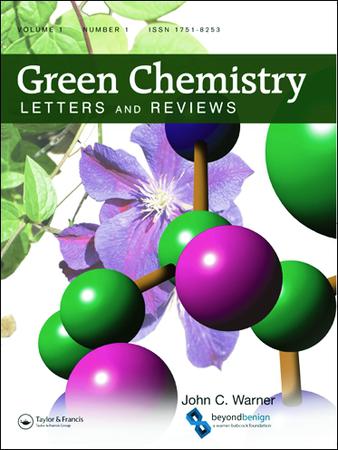有机化学中的政治参与:利用绿色和可持续化学的倡导项目
IF 5.8
3区 化学
Q1 CHEMISTRY, MULTIDISCIPLINARY
引用次数: 0
摘要
本文章由计算机程序翻译,如有差异,请以英文原文为准。
Political engagement in organic chemistry: an advocacy project utilizing green and sustainable chemistry
ABSTRACT
This paper describes the design and implementation of a political advocacy project in an Organic Chemistry II course. The advocacy project was designed to demonstrate that organic, green, and sustainable chemistry can be applied outside of laboratory and industrial settings to help solve issues related to environmental sustainability. After the instructor identified pending state legislation relating to sustainability, students read and summarized the bill. After class discussion, students did further research into questions raised in the discussion and prepared talking points. The talking points were developed into a white paper or postcard in advance of a class trip to the state capitol to share the views with legislators. Student reflections indicated a positive experience with advocacy, a greater understanding of environmental issues that affect them, and better awareness of how they can affect change. GRAPHICAL ABSTRACT
求助全文
通过发布文献求助,成功后即可免费获取论文全文。
去求助
来源期刊

Green Chemistry Letters and Reviews
CHEMISTRY, MULTIDISCIPLINARY-GREEN & SUSTAINABLE SCIENCE & TECHNOLOGY
CiteScore
9.10
自引率
3.00%
发文量
48
期刊介绍:
Green Chemistry Letters and Reviews is an Open Access, peer-reviewed journal focused on rapid publication of innovative new syntheses and procedures that reduce or eliminate the use and generation of hazardous materials. Reviews of state-of-the-art green chemistry technologies are also included within the journal''s scope.
Green Chemistry Letters and Reviews is divided into three overlapping topic areas: research, education, and industrial implementation. The journal publishes both letters, which concisely communicate the most time-sensitive results, and reviews, which aid researchers in understanding the state of science on important green chemistry topics. Submissions are encouraged which apply the 12 principles of green chemistry to:
-Green Chemistry Education-
Synthetic Reaction Pathways-
Research and Process Analytical Techniques-
Separation and Purification Technologies-
Renewable Feedstocks-
Degradable Products
 求助内容:
求助内容: 应助结果提醒方式:
应助结果提醒方式:


